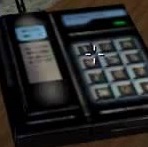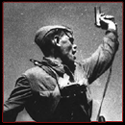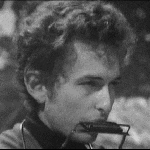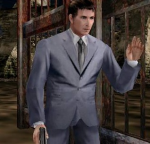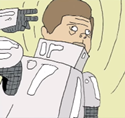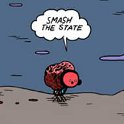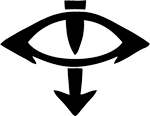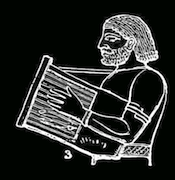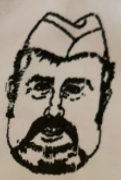|
I seem to be having a problem with my fairly new Casio Privia PX 730, its about 10 months old. The E above middle C seems a touch more "clicky" than the rest of the keys, which isn't a real problem but what is, is during playing, when I play the key, no matter what action I use it occasionally sounds like I've hit it as hard as I can, with a hammer and several extra G's of force. It seriously explodes. But its intermittent, and seemingly random. Does anyone have any idea what's causing this?
|
|
|
|

|
| # ? May 22, 2024 04:43 |
|
Thanks to the magic of craigslist, I was able to get a Roland RD-300sx for cheap. It seems like it will a great 88 key weighted keyboard for the price. I'm going to take lessons as soon as I can afford to, but in the meantime can anyone recommend a book or website that shows you "correct" fingerings for common chords, or even better in inversions used in jazz and the like. For now I just want to be able to work out the examples in Levine's jazz theory book at no tempo. I can find the notes but have no idea what kind of fingerings I should me using, and don't want to pick up bad habits. 
|
|
|
|
I'm no expert but for fingerings, I tend to find looking at a bar or phrase as a whole helps, find the highest note on each hand (assuming no crossing over) and that's obviously going to be your thumb/pinky, the lowest your pinky/thumb (left/right). When I need to move my hand, I'll think about either a sort of crab like pincer (put thumb and ring together, move thumb out, ring in, thumb out) or crossing at the same point as scales, around the 3rd finger. Generally just try it and see what your hand does, less movement and easier is usually better. That last couple of bars, right hand can easily just be 1, 2, 3, 4, 5, 4, (1,2,5 x2) Cast_No_Shadow fucked around with this message at 14:57 on Oct 24, 2012 |
|
|
|
I'm looking to purchase a Casio Celviano AP-620. It was a choice between that or the Roland RP301, but I feel that the Casio offers more for the money. Does anyone have experience with this piano? If so, what do you think of it?
|
|
|
|
Cast_No_Shadow posted:I'm no expert but for fingerings, I tend to find looking at a bar or phrase as a whole helps, find the highest note on each hand (assuming no crossing over) and that's obviously going to be your thumb/pinky, the lowest your pinky/thumb (left/right). I'm pretty new myself with only a few months under my belt, but this is what I did as well. I tried just learning fingerings for each chord, but then had problems transitioning to the next notes after I practiced the chord enough. I found that if I play 2-3 bars at a time, over and over again, my fingers will just naturally fall where I want them too after enough practice. Adding a bar at a time, rather than practicing the next set of bars, helped a lot too as there's a lot of fingerings that feel totally natural and good right up until you add the previous bar to it at which point they become stupid. I don't know if this is a particularly good idea or not, but it hasn't let me down so far and I can't see it being particularly bad later in life. But what I came for! I'm finally good enough that I feel I can start practicing styles rather than just technique, core skills and all the progressively more challenging music I'm sure everyone has played while learning. I want to learn jazz piano, specifically something like this which all my friends refer to as Hotel Bar Background Jazz. I really really hate practicing off sheet music. I find myself gaining a lot more traction just mimicking songs and just discovering for myself what sounds nice and why. The problem I've been running into is that the musicians I really like, like McCoy Tyner, play music that's so far above my skill level that I have a lot of trouble learning off of it. Anyone have some sort of Intro To Jazz music that I can listen to and play from?
|
|
|
|
I'm just getting into Jazz as well, and the first 3 pieces I've had to work on are Freddie the Freeloader by Miles Davis, Sunday Morning by Maroon 5, and 500 miles high by Chick Corea. Freddie the Freeloader is a jazz classic and contains just a few simple chord progressions with a simple baseline. Sunday Morning just has 3 chords (well 5 counting a couple at the end), and a simple piano solo. 500 miles high is a bit harder, with a chord progression 7 or 8 chords long and some tricky rhythms best learned by hearing them. Of course, I'm not sure if the arrangements I have are like the ones you will find. If not then the chord progressions are here: Freddie: Bb7, Eb7, Bb7, F7, Eb7, Ab7 Sunday: Dm9, G9, Cmaj9 (towards the end, a couple: g5, Cdim) 500 miles high: Em7, Gm7, Bmaj7, Bm7(b5), E7(#9), Am7, F#m7(b5), Fm7, Cm11, B7(#5) By the way, Cm11 is the most chill sounding chord I've ever heard. It's like you're up there on those clouds, wearing sunglasses and sipping lemonade. One way to play it is to play G, Bb, Eb, and F at the same time.
|
|
|
|
I have a question for any advanced players in here. My question regards technique in general. When learning to play difficult material, I find it's easy to get caught up in meta-learning stuff like, am I relaxed enough, or am I being efficient enough, or am I using the best fingering for reaching fast speeds, etc. I feel like all of this stuff adds a lot of baggage and uses up a lot of unnecessary brain processing time. I also feel like it adds some big psychomatic barriers to just practicing at the speed you are trying to reach and just repeating things over and over. I often sometimes wonder if I shouldn't just ditch this mindset altogether and practice 'intuitively', aka play whatever I want at whatever speed I want, and not give a crap about bad habits forming. I feel like I trust my intuitive judgement enough to know when something isn't working well and change it. I just find it so hard to consciously think all the time in practice, to the point where it's actually counter-productive. And if this is just naturally how I am, what's the point of trying to change a learning style that my brain just isn't compatible with? My experience so far with technique has been that the most important thing is time, repetition, and thinking only in a primitive way about making adjustments to what you are doing. Nothing else seems to make much of a difference. Engaging in conscious analysis of everything you are doing is tiring and is counter-productive to the point of diminishing returns. Just feeling it sometimes feels like the smartest way to go. There's another student in a class of mine who is your typical player with little or no discipline. He just plays whatever he feels like and usually at fast tempos. His instructors have been constantly cautioning him against his practice style and he seems like the prime candidate for learning a bunch of terrible habits. Also, for a long time the pieces he played at those fast tempos were full of audible mistakes and pauses. But then something kind of funny happened. Sure enough, over time his pieces became cleaner and cleaner, until there are maybe just a few mistakes or no mistakes at all when he's playing them at blistering speeds. He is also obviously smart enough to think about the music as well. So I was asking myself - why not just let this guy, or myself, be? Learn the way we want to learn - the only thing that matters is the results.
|
|
|
|
Keep doing what you're doing. I've studied with some pretty amazing pianists and they would all advise you to actually be EVEN MORE conscious of your practicing. Because making your brain work hard in practice, allows it to go into auto pilot mode on certain things you don't want to be worried about during a performance. Things like body tension are actually very important for a performance. If you actually make mental notes while you perform a piece in practice of where you're going to relax, how your hand is going to be positioned, what weight of the hand will make the sound and other things like that, they will hopefully, by the time you perform, be engrained in your memory and will help you with a better performance. Honestly, things like "he can play it faster than I can quicker" has nothing to do with you using your brain during practice. He might just naturally learn things quicker than you, or practice more. Repetition for repetition's sake, is mostly pointless. If you're not thinking consciously of everything you're doing while you're practicing, you're not practicing hard enough. Your brain should be engaged from start to finish of the practice. You should be trying to incorporate as many good habits as possible. You should be varying the speeds at which you play through passages. Over tempo, under tempo, at tempo, in various rhythms of 2's and 3's. All of this will help solidify passage work. I have a hell of a time learning notes. It's frustrating that other pianists can sight read what it takes me 2-3 weeks to learn. But in the end, we end up at the same point, because I put in the time and effort to do what I need to. Sometimes I even beat them in competitions  Hope this helps you a bit. Annies Boobs fucked around with this message at 17:00 on Nov 20, 2012 |
|
|
|
Annies Boobs posted:advice Thanks - I guess it's just been hard to consciously think about stuff because I've been so tired. Also I seem to get such limited results in the short term thinking about what I'm doing - before long I've lost whatever it was I was trying to accomplish in that moment and go back to playing whatever passage over and over, worried I won't have it up to tempo in time. I'm just naturally very bad at staying focused. The way I normally do things is a bit like bizarro-learning - my brain more or less shuts off and I just do what comes naturally. I do sort of 'think' about what I am doing and correct what I am doing on the fly as I work, but it's almost completely subconscious. If I try to stop and really think, I get lost. If results are what matter, I am not very happy with my results, but I've also been told they are very good for my age and time playing so far. But it's not where I want it to be and it's hard to judge whether that is because I haven't been playing long enough or because my practice is bad. I also don't necessarily trust most people when they comment on my playing. For example, I just performed J.S. Bach's C Minor Prelude from the WTC Book 1 tonight. In total, I've been playing 'seriously' for less than 2 years, and with focused practice for a little over a year. I've probably practiced this piece around 10-20 hours total. I'm also an adult learner, starting focused practice when I was 25 years old. This piece gives me a great deal of trouble - I can play the opening only at a slow tempo and the presto part a bit faster, but slow as well to avoid major errors. All I can say at this point is that I've learned the notes, and can play them accurately most of the time as long as the tempo is slow. I'm also very good at 'faking it' and making things sound better than they really are, but is this about right or should I be making faster progress? How do you tell if your progress is normal or if you're practice habits need improving? Sorry for more interrogation 
|
|
|
|
I don't know how you could "fake it". If I hear you playing bad, you're playing bad. There's no faking solo piano repertoire. I didn't learn the c minor prelude & fugue until I was 16. I started playing at 8. So take that as you like?
|
|
|
|
Annies Boobs posted:I don't know how you could "fake it". If I hear you playing bad, you're playing bad. There's no faking solo piano repertoire. Hah, indeed. I guess it's more about the gulf between 'hitting the right notes' and sounding good. The former I suppose is simply mediocrity, as opposed to being bad. I'm somewhere in that area. Also, the difference between your average uncritical audience, and your instructor or another student  quote:I didn't learn the c minor prelude & fugue until I was 16. I started playing at 8. So take that as you like? Thank you, that's very helpful.
|
|
|
|
I've suffered from focus difficulty when trying to seriously learn a piece for recital. The best solution I've found is to find another piece to work on in tandem. Just switching from one to the other often helped me make more progress on both than if I'd tried to learn them separately. That might be a YMMV thing, though. As far as the undisciplined guy you were talking about, that style's all fine and dandy, until you hit a really hard piece. Then it doesn't matter how many simpler pieces you've learned; your technique just isn't good enough. Good habits and learning how to practice well will take you a lot farther in the long run than winging it piece by piece. A tidbit on practicing! IIRC Rachmaninoff said the key to his technique was to learn each piece incredibly slowly before bringing it up to tempo. Haven't tried it much personally, but could be worth checking out.
|
|
|
|
I think playing well is at least as much mental as it is physical, maybe even more, and so practicing with your brain off isn't really helpful generally. Also, I think...I tend to try to break down exactly what is difficult about each small segment of a piece, because it's not always the same thing. Why is it hard to play this line? Is it the fingering, or is it coordinating the two hands, or is it large leaps and accuracy or something else? How I practice it depends on the answer. If you're not really focusing on it mentally how can you even know? I suffer from problems with focus too, and I get really easily frustrated so the more I need to practice something the less likely I am to sit there and pound away at it. For me, it helps to set small goals and really try to stick to them ("I'm working on THESE FOUR MEASURES TODAY, and that's IT"). Also I tend to practice in many short bursts, like fifteen minutes at a time, then go do something else for twenty minutes, then another fifteen minutes practicing and so on.
|
|
|
|
So I need a theory book or two. But all I can find are either, "My first theory book" or "Minute observations in one tiny microcosm of composition" where is the middle ground. The vast, vast majority of theory books I can find are basically "This is how you read sheet music, these are chords\scales and how you make them" that sort of stuff. I know all that. The other ones I can find assume you know all the above, and then this whole other curriculum of regarding harmony, cadences and so on. I am I just retarded that I cannot find this...anywhere?
|
|
|
|
I'm in a sort of similar position to CowOnCrack. Similar time playing, similar difficulty in pieces (judged by a quick listen). I too find learning two pieces that are very different in style helpful, switching helps prevent the tedium of repetition and I find intensive practice of one thing, followed by a break while I practice something else, and the returning gives far, far better results than straight practice of a single thing would. If that makes sense. Almost as if it needs time for my brain to figure it out and store it. Getting a good teacher is vital, not one of my friends will ever criticise my piano playing no matter what I say. In some cases its a lack of knowledge, it sounds nice but they don't know enough to pick up on the fact I missed a note or over played some poco rit etc. Even in those that do have that knowledge, its still a bit hard to actively pick apart the work of a friend. A good teacher though, will know their stuff and actively make sure you are aware of parts that can be improved. As for speed, I assume you use a metronome? Use it more. Play a phrase, or section, or page or whatever you are comfortable with at a speed you can play it with a metronome, play it correctly at that speed 2-4 times depending on confidence with it. Up metronome 1-5 bpm. Repeat until at performance bpm + 10-30%. In very few songs, especially at this sort of level, is speed the problem. More likely its incorrect technique or just plain not knowing the piece well enough.
|
|
|
|
Wohoo thanks for all the advice.Cast_No_Shadow posted:So I need a theory book or two. But all I can find are either, "My first theory book" or "Minute observations in one tiny microcosm of composition" where is the middle ground. I was using the Fundamentals of Piano Theory by Keith Snell levels 1 through 8 or so, and now my textbook is Tonal Harmony by Stefan Kostka, Dorothy Payne and Byron Almen. This book is pretty expensive however, and is probably nigh impossible to work through without teacher assistance. I happen to have an extra copy because I bought the old edition not knowing a new edition was coming out. Thus I have a 6th edition lying around while I use my 7th edition. If you are interested PM me and I can probably sell + ship for pretty cheap.
|
|
|
|
I actually snagged all the Snell books at once on Amazon only to find that they were teacher's editions when they arrived  . I sent them back and haven't found a great package deal for them all since. I'd love to have them though as I hit a wall in terms of educating myself. . I sent them back and haven't found a great package deal for them all since. I'd love to have them though as I hit a wall in terms of educating myself.
|
|
|
|
Could anyone help me out with my first MIDI controller? I have an Oxygen 25 and I'm trying to get it to work through Pro Tools 10 but I can't figure it out.
|
|
|
|
WASDF posted:Could anyone help me out with my first MIDI controller? I have an Oxygen 25 and I'm trying to get it to work through Pro Tools 10 but I can't figure it out. While I'm sure you'll eventually get an answer in here, I think you'd be better off asking in one of the music production threads. This thread is, at least at the moment, populated by people who play piano rather than use it as a midi controller. CowOnCrack - I'm sans PM's but also UK based, dunno what that does to shipping of textbooks, especially ones I assume will be pretty heavy. Cast_No_Shadow fucked around with this message at 13:32 on Nov 22, 2012 |
|
|
|
I'm nearing the end of Alfred Solo Piano Vol. 1, and before I buy 2, I'd like some recommendations on song/technique books in that skill level. Just trying to diversify, only playing out of Alfred is sort of a bore. I've been self-teaching after two years of group piano lessons in college.
|
|
|
|
I'm trying to combine my piano desk with my computer desk - I'm basically looking for a way to attach a large (60inch) pull out shelf under my desk. Is there any DIY kit or something I can look into for making this?
|
|
|
|
In the business park where I work there is an attached hotel. In that hotel down by their conference rooms there is an old piano in the corner. I happened to see it while walking around one day and decided to teach myself to play So far I've been going through the lessons on pianonanny.com, which seems like a decent place to start if you have literally no knowledge beforehand. Assuming I can stick with it and continue to enjoy it I'm going to want some keys at home. I'm reading decent reviews of this Williams Allegro 88-key, with the only real complaints being 'waah it's tooo heavy'. I'm looking for the closest approximation I can get to playing on an acoustic piano (both in sound and feel), I don't care about having a bunch of samples or light-up keys or anything like that. If anyone has a better recommendation for pianonoobs to get started with I'd appreciate hearing about them.
|
|
|
|
I need an 88 key midi controller with weighted keys - whatever is closest to a real piano. Cost as low as possible. I have a full size real piano already, I just want a midi controller to practise things on while connected to my PC and to record. Also, a stand that accommodates it would be nice. Any recommendations?
|
|
|
|
ray_finkle_himself posted:I need an 88 key midi controller with weighted keys - whatever is closest to a real piano. Cost as low as possible. I have a full size real piano already, I just want a midi controller to practise things on while connected to my PC and to record. Also, a stand that accommodates it would be nice. I have a Yamaha KX8 which I love, picked it up for ~$450 off eBay. Seems like that's about what they're going for now. Any standard X keyboard stand works fine. For that price range, I think your other options are an Akai MPK88 and a Studiologic SL-990XP. Haven't tried either so I can't comment, but from what I read the KX8 seems like it has the best weighting of the three.
|
|
|
|
FateFree posted:I'm trying to combine my piano desk with my computer desk - I'm basically looking for a way to attach a large (60inch) pull out shelf under my desk. Is there any DIY kit or something I can look into for making this? I looked into this for a while when I was thinking about a new desk. There exist pre-made desks for this purpose, that looked sweet as heck, but ran upwards of $1-2K. I found a used one of CL for <$1K, and was strongly considering it, but I ended up finding a pretty sweet dining table in Ikea's As-Is section, that I'm now using as my music desk. The keyboard just sits on top of the desk, and there's plenty of real estate to fit mouse/keyboard/everything else because it's not really a desk, it's a huge dining table. Works for me though! If you have the money, the pre-made ones are slick, but honestly I'm extremely happy with what I have now, just make sure to measure the distances and heights with the chair you'll be using to make sure everything is a comfortable level for playing.
|
|
|
|
Takes No Damage posted:Assuming I can stick with it and continue to enjoy it I'm going to want some keys at home. I'm reading decent reviews of this Williams Allegro 88-key, with the only real complaints being 'waah it's tooo heavy'. I'm in rather a similar position, my wife learned the piano 20 years ago when growing up and we've both talked about it, so we are looking into finding a relatively cheap keyboard that is close enough so that we can play an acoustic piano my parents have at their house. I looked at both that Williams and this Casio: http://www.amazon.com/Casio-CDP-120...ywords=cdp-120. If you puchased that Williams keyboard I'd be very interested in hearing how you like it.
|
|
|
|
Zhent posted:I'm in rather a similar position, my wife learned the piano 20 years ago when growing up and we've both talked about it, so we are looking into finding a relatively cheap keyboard that is close enough so that we can play an acoustic piano my parents have at their house.
|
|
|
|
Hey I'm a beginner here, I have a question about a note that I don't know. My teacher didn't explain it when he assigned this piece for practice: The notes I don't understand are circled. I mean I know it's f and g, but how long should I hold them? Why does the tail go up and down? The song is in 4/4. Thanks for your help. Inab fucked around with this message at 04:18 on Dec 8, 2012 |
|
|
|
Hold for 2 beats. Its in 4/4 so each bar is 1,2,3,4. So you hold those notes for two beats while playing the next three notes. So Hold F while playing D, A, D then release F and hold G while playing D, B, D. The lines going both way show two voices in unison on the same clef. Basically assuming the piece is a piano piece written for piano it would suggest there are two distinct voices in the bass clef and they cross\join\both hit the same note at that point. If it were orchestral or with multiple instruments and you have two on the same staff, say soprano and alto, soprano would have all the staffs pointing up, alto down, and that note would show they are both to play\sing it. You can see it in that piece. You have two voices in your baseline. One goes code:code:
|
|
|
|
Also it's just placing emphasis on the F and the G. They're important so bring them out in your voicing of the notes.
|
|
|
|
After a couple years of running the "weird instruments" thread in A/T, I suddenly find myself with a niche interest in keyboard, so I'm back to asking beginner questions myself. For reference I've been playing music for about 24 years, but mostly melodic instruments and mostly in folk genres, so while there are a lot of arcane modal and microtonal things I'm into, my grasp of normal theory is patchy. A few years back I bought this Jaymar 25-key toy piano (where the keys hammer little metal bars). Jaymar is a good brand, so it's quite playable in the John Cage avant-gardey sense, on-pitch etc. I'd just messed with it in the past, but the last few days have actually been playing it more seriously, trying to harmonise with the left hand while improvising on the right. I cracked open some intro YouTube clips to see if I could learn some basic pieces, and quickly found out 25 keys is not going to cut it. They do make 49-key toy pianos, but it wouldn't kill me to just get an actual keyboard. My music dorkiness but keyboard ignorance leads me to think I want something like the following: - 4 to 6 octaves: mostly I just want to practise theory and maybe play some Bach. If I were ever to get a serious keyboard, it wouldn't be a baby grand, but a clavichord or something similar, and those are just 4-6 octaves. Same with the Hohner Clavinet I've also lusted after, or Bill Napier-Hemy's experimental electric clavichords.  - I've got some Luddite/pretentious desire to get an analog keyboard, but that could be an impractical attraction to the idea of analog being cooler than digital. - I have zero interest in MIDI capability, recording directly to computer, laying down multiple tracks, etc. I want an instrument that mostly just acts like a small acoustic keyboard, though I suppose I wouldn't mind having some knobs to tweak tone and things like that. The once fancy thing that would be kind of cool is something that could switch between Equal and Just temperaments, but that's totally optional. - For right now this would be just screwing around sitting on the rug on my apartment floor (Indian harmonium keyboard style), so I don't want to spend too much unless it's something amazingly suited to my niche desires. Under $500 would be great. I guess that could be summed up as: small keyboard for learning theory and some early Baroque music, and I'm being a special snowflake and want something that's not a normal 88-key Yamaha with digital display like a reasonable adult would buy.
|
|
|
|
How about a Korg Micropiano? http://www.korg.com/micropiano  They go for about $300.
|
|
|
|
Here are some recordings I just made of the jury pieces I'm playing tomorrow: http://tindeck.com/listen/wscl http://tindeck.com/listen/repo I am hoping for 0-2 audible mistakes/pauses instead of 3+  Let me know all the different ways this is lovely so I can improve my playing! Ty
|
|
|
|
What a coincidence, I just got done playing through WTC 1 again! I think I was playing those earlier today. I'm used to hearing them a lot faster, for starters. I think my main critique would be that the left hand seems a bit too staccato for the first part of the prelude. I don't think it would matter as much at a faster tempo, but it feels like there's too much space at that speed. I'm not saying to hold those notes for the full eighth note written, but maybe as sixteenths or something, just so it persists a bit more. I do like the job you did bringing out the inner voices for the arpeggiated chords later on. On the Fugue, I like how well you've brought out the theme with the phrasing you've chosen. There are some moments again, though, where it seems like there's too much space. If you're handling all three voices, and they all go staccato at once, there's pauses where there's no music at all. Again, I don't think it'd be as noticeable at a faster tempo, but I found it a bit distracting. Possibly hold one or more voices over at those points. On the whole, though, sounding pretty good. Good luck with the jury!
|
|
|
|
Blog Free or Die posted:What a coincidence, I just got done playing through WTC 1 again! I think I was playing those earlier today. Good tips, I recently decided to slow the whole thing down a lot because I think playing them at the right tempos with my current technique would be a mistake (it would come down to getting lucky which I don't like). However I didn't realize that I would need to lengthen the staccatos and other short notes appropriately. I will try to keep that in mind. In 4 hours I play the pieces. Thanks for the comments!
|
|
|
|
Dr. Honked posted:How about a Korg Micropiano? That one is a bit tempting: reviews seem a little mixed, but appears to trend towards the "people who have them like them, 'serious' players don't" kind of thing. At first glance it looked pretty good as a "just turn it on and play it" keyboard with some decent piano sounds (and iffy non-piano sounds). However, digging into it it seems a lot of folks recommend the $399 Korg MicroStation as a better deal. The MS is almost the same thing (61 mini keys), but has at least the basic MIDI/USB access and synth-type bells and whistles. People that need utter portability seem to like the MicroPiano since it can take batteries and has a built-in speaker, but since I just plan home play, plugging it into the wall and into a Roland Cube or similar small amp would be fine. Also that cute lid looks a bit fragile. I do like the mini-ness of both though.  The other keyboard I'm looking at that's getting a little away from what I was originally looking at is the M-Audio Venom. I've been having a little initial confusion as to which items are meant to be played as piano-type objects and just happen to have some synth capabilities, and which are synths that just happen to have a small keyboard for melodic work. The Korg MS seems the former, and the Venom kind of in-between. The Venom ($350) is only 49 key, but appears to have a lot of great sounds and features, gets good reviews, isn't too large, etc. As a "virtual analog" synth, the Venom appeals to the part of me that lusts after the Nord Electro and such similar cool keyboards; makes me want to play some Switched-On Bach like in the Clockwork Orange soundtrack or something.  I'm kind of torn between these two, or else just getting some cheap beater Casio off Craigslist or eBay and doing some exercises on that for a month until I get a better idea what I want. But then again if I get a nicer keyboard right out it might help focus the motivation to learn it.
|
|
|
|
TapTheForwardAssist posted:That one is a bit tempting: reviews seem a little mixed, but appears to trend towards the "people who have them like them, 'serious' players don't" kind of thing. At first glance it looked pretty good as a "just turn it on and play it" keyboard with some decent piano sounds (and iffy non-piano sounds). However, digging into it it seems a lot of folks recommend the $399 Korg MicroStation as a better deal. The MS is almost the same thing (61 mini keys), but has at least the basic MIDI/USB access and synth-type bells and whistles. People that need utter portability seem to like the MicroPiano since it can take batteries and has a built-in speaker, but since I just plan home play, plugging it into the wall and into a Roland Cube or similar small amp would be fine. Also that cute lid looks a bit fragile. I do like the mini-ness of both though. If you can't decide what to get, after it seems like you changed your mind about MIDI, I would say that you should get a cheap beater. I would strongly advise against the Venom, it's pretty much the opposite of what you originally wanted. Plus it sucks. I don't know much about the Microstation but it is also very different to what you originally wanted. If you really want to learn to play the piano, you need to spend some buxx on a decent instrument, and there have been plenty of those listed in this thread. Also consider renting. A lot of music stores will rent out all kinds of stuff and if you are steering towards synthesizers and MIDI/computer based music, which it now looks like you are, this is a great way to try some out. If you don't know much about synthesizers, you're in danger of hitting a vertical learning curve, so tread carefully at first. The synthesizer thread is great, by the way, and is pretty noob friendly.
|
|
|
|
Does anyone know where I can get a midi, or orchestra only version of Mozart's Piano Concerto in d minor? I'm home on the break, don't have my professor/accompanist here, and I need to start playing with the orchestra to get a feeling for the emotion of certain sections. It's difficult to imagine certain dynamics when the score has minimal dynamic markings in it and all these crazy passages linked together. Midi would be preferable so that I can work at various tempos. 132 is loving fast for this!
|
|
|
|
Hey piano dudes, released a new piano album, let me know what you think. http://dukamok.bandcamp.com/album/timeshift Next up I'd like to learn a little more classical, at the moment I'm stuck in the "chords+scales" method, but I think I could grow a lot by picking up some more arranged things. Based on what I've already got here, anyone have any piano composer recommendations to start learning with?
|
|
|
|

|
| # ? May 22, 2024 04:43 |
|
DukAmok posted:Hey piano dudes, released a new piano album, let me know what you think. Most of the popular classical pieces are popular because they were easy enough for your average joe to be able to play them in their front room (as well as being good). Beethoven's Fur Elise & Moonlight Sonata Mvt 1 Motzart's Rondo Alla Turca Haydn's La Roxolane Chopin's Raindrop etc. Probably all in the Grade 3-5 range. Bach also has somewhere around 8 billion pieces ranging from easy to bloody hard if you want something more baroque. [Edit] Actually if you're looking to "grow" and you have released a Piano album I'm guessing its less about technique and more about musicality? Maybe look into some Chopin stuff, Preldues in E Minor and A Major are both easy to press all the right notes but hard to make sound just right but Chopin is popular enough for you to have hundreds of version to listen to, from the amateur to the professional to get different ideas? Cast_No_Shadow fucked around with this message at 17:19 on Dec 24, 2012 |
|
|







